
Introduction
As the Australian summer approaches, many of us on the Gold Coast are looking forward to warm, sunny days spent by the pool. However, before diving into the season, it’s essential to make sure your swimming pool is both safe and compliant with Australian regulations. Whether you’re a homeowner or a commercial property owner, pool inspections play a critical role in ensuring the safety of everyone who uses your pool.
On the Gold Coast, pool safety and compliance are especially important given the area’s high volume of pool usage during summer. Pool inspections not only help maintain safety but also ensure you avoid costly penalties associated with non-compliance. Pool compliance certificates are crucial as they prove adherence to government standards. In this article, we’ll explore the key safety checks involved in a pool inspection and why now is the perfect time to get your pool ready for the summer season.
Why Pool Inspections Are Crucial for the Australian Summer
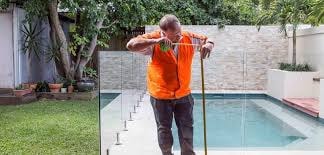
With the Gold Coast’s scorching summers just around the corner, pool use skyrockets as families and guests flock to cool off. While enjoying your pool is a highlight of the season, ensuring its safety through a professional inspection is essential. Australian regulations require all pool owners to maintain specific safety standards, particularly for pool barriers, fences, and overall pool area safety.
A pool inspection ensures that your swimming pool is compliant with these regulations, helping to protect loved ones from accidents, especially small children. Additionally, a compliant pool not only offers peace of mind but also helps you avoid potential fines or legal repercussions that come with non-compliance.
Whether you’re preparing your pool for family gatherings or ensuring your commercial property’s pool is ready for guests, a thorough inspection before the summer season begins is a wise investment in both safety and compliance. For prospective homeowners, pre purchase pool inspections are crucial to ensure that the pool and its surroundings meet safety standards, providing peace of mind and compliance with local regulations.
Key Safety and Compliance Checks for Pool Inspections
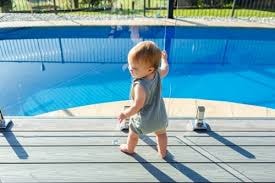
Pool Barrier Compliance
One of the most important aspects of a pool inspection is the pool barrier. In Australia, pool barriers must meet strict regulations to prevent accidental drownings, particularly involving young children. Barrier inspections are crucial to ensure that a qualified inspector evaluates the barrier to meet regulatory standards. Inspectors will check the height, material, and gate mechanisms to ensure the barrier is secure and childproof. Self-closing gates and childproof locks are often key requirements.
Swimming Pool Fences
Beyond the pool barrier, fences surrounding the pool area must also meet safety standards. The material and height of the fence play a crucial role in compliance. Your inspector will ensure that the fence is in good condition, has no gaps that a child could climb through, and isn’t climbable from the outside.
Pool Safety Inspections
Swimming pool inspections will review the entire pool area for hazards that could pose a risk to safety. This includes checking for overhanging trees or other obstacles that could cause slips or falls, as well as ensuring the pool surface and surrounding area are free of hazards like loose tiles or damaged decking.
These checks are designed to ensure your pool is safe for everyone, so you can enjoy your Australian summer with peace of mind.
What Homeowners Should Expect from a Swimming Pool Inspection
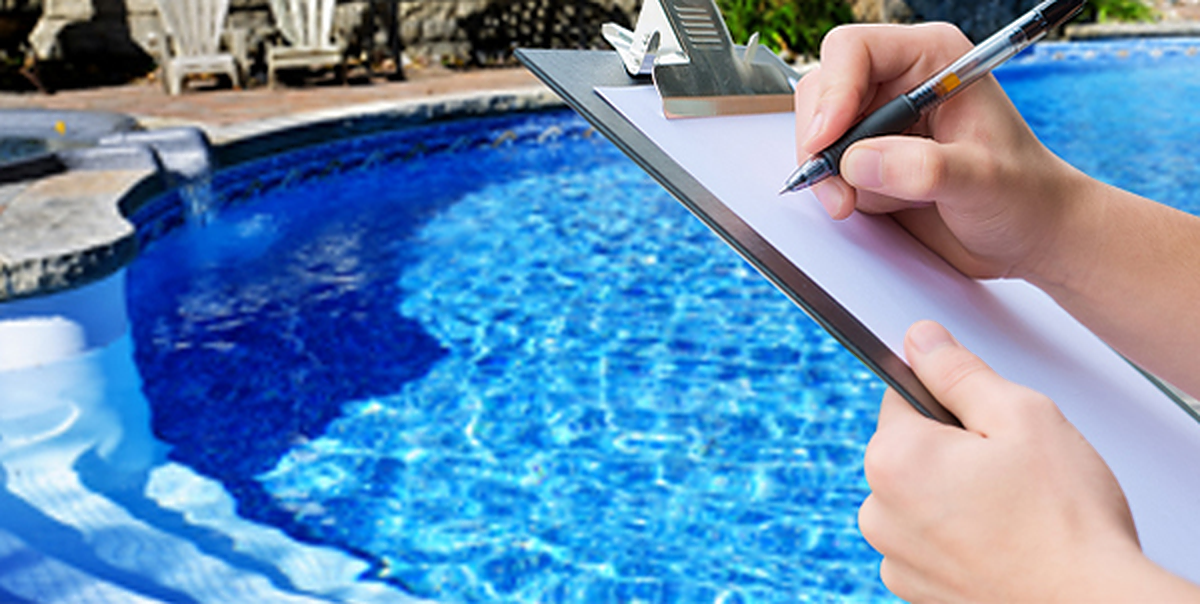
Pre-Inspection Preparation
Before the inspection, make sure your pool area is clean and clear of debris. Trim any overhanging trees, remove clutter, and ensure that the pool gate and fencing are in good working condition. If you have a pool cover, check that it’s functioning properly as this may also be reviewed during the inspection. Taking these simple steps can help avoid delays and ensure your pool passes inspection the first time.
Swimming Pool Certificate
After a successful inspection, you’ll receive a pool safety certificate, which confirms that your pool complies with all relevant Australian safety regulations. This certificate is not only a legal requirement but also provides peace of mind knowing your pool area is safe for family, friends, and guests.
Additionally, it is crucial to ensure your pool barrier meets local standards for spa barrier compliance, as this further guarantees the safety and security of your pool area.
Choosing a Registered Swimming Pool Inspector
It’s important to choose a registered and qualified inspector to conduct your pool inspection. In Australia, pool inspectors must be licensed and trained to assess safety standards. Look for inspectors with a proven track record of reliable service, such as MEC Builders, who provide expert pool inspections across the Gold Coast. Ensuring your pool is inspected by a trusted professional helps guarantee compliance with all Australian safety regulations.
The Consequences of Non-Compliance
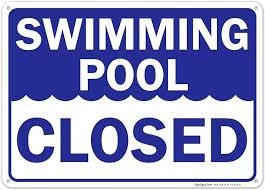
Failing to comply with pool safety regulations can lead to serious consequences, both legally and financially. Understanding the risks of non-compliance helps motivate pool owners to stay on top of safety standards and avoid potential problems down the line.
Fines and Legal Implications
Non-compliant pool owners can face substantial fines from local councils, particularly in areas like the Gold Coast, where pool safety regulations are strictly enforced. These penalties can vary depending on the severity of the violation, but the costs can add up quickly if issues are not addressed promptly. In some cases, owners may even be required to close their pool until it meets compliance standards.
Safety Risks
Beyond the legal repercussions, non-compliant pools present significant safety risks, particularly if they lack an effective swimming pool barrier. Faulty pool barriers or unsafe pool areas can lead to accidents, including drownings, particularly for children. Ensuring that your pool meets safety standards can help prevent tragic incidents and provide peace of mind knowing your pool is a safe place for friends, family, and guests.
By prioritizing pool safety and compliance, homeowners and property owners can avoid both financial penalties and potential safety hazards, ensuring a safe and enjoyable summer for everyone.
Commercial Pool Inspections: Ensuring Safety for Public Pools
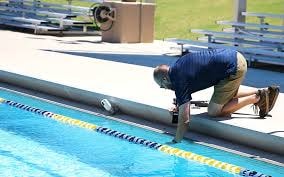
For commercial properties, such as resorts, hotels, or public swimming facilities, regular pool inspections are essential to maintaining safety and compliance. With the Australian summer bringing in large crowds, commercial pools experience heavier usage, increasing the need for regular inspections.
Unique Requirements for Commercial Pools
Commercial pool inspections focus on essential safety aspects such as pool barriers, filtration systems, and overall maintenance. Inspectors will ensure that the pool area is free from hazards and that equipment is functioning properly to handle high traffic. For example, pool pumps and filters are checked to ensure they meet health standards, preventing any water quality issues that could pose health risks.
These inspections help public pools remain safe and compliant, avoiding potential fines and reputational damage. By staying proactive, commercial properties can provide a safe, enjoyable experience for guests.
Benefits of Regular Pool Inspections for Homeowners and Property Owners

Peace of Mind
One of the biggest advantages of scheduling regular pool inspections is the peace of mind it provides. Knowing that your pool complies with all safety regulations means you can relax, knowing your family, guests, or tenants are safe from potential hazards. This is especially important for families with young children or properties with high foot traffic.
Avoiding Costly Repairs
Small issues with pool safety or equipment, if left unchecked, can escalate into larger, more expensive problems. Regular inspections allow for early detection of these issues, helping you address minor repairs before they turn into major, costly fixes. Whether it’s a worn-out pool gate mechanism or cracks in the fencing, early intervention can save you money in the long run.
Increased Property Value
A well-maintained and compliant pool can also boost the overall value of your property. Buyers and tenants alike are drawn to properties that are safe, functional, and up to code. Regular inspections ensure that your pool remains a valuable asset, whether you’re staying long-term or planning to sell.
By staying proactive with inspections, pool owners can enjoy the long-term benefits of a safe, compliant, and well-maintained pool, free from unexpected repair costs or safety concerns.
Pool Inspection Costs
Cost of Pool Inspections in Australia
The cost of pool inspections in Australia can vary based on the state, location, and type of inspection required. On average, a pool safety inspection can range from $150 to $300, depending on the complexity of the inspection and the inspector’s fees.
Although the cost of a pool inspection might seem significant, it is a small price to pay for ensuring the safety of your pool and compliance with local regulations. Investing in a pool safety inspection can help you avoid hefty fines, legal issues, and, most importantly, ensure a safe swimming environment for everyone.
Scheduling Your Pool Inspection This Summer
As summer approaches, now is the perfect time to schedule your pool inspection. Ensuring your pool is safe and compliant before the season starts will give you peace of mind as you and your family, or your guests, enjoy long days by the water.
With pool inspections being a legal requirement, particularly on the Gold Coast, getting ahead of the summer rush ensures you avoid last-minute issues. Being proactive helps you steer clear of potential fines or compliance problems by having your pool inspected early.
Whether you’re preparing for family gatherings or ensuring your commercial property’s pool is guest-ready, an early inspection is a smart investment in both safety and compliance. MEC Builders, with a 5-star rating on Google, provides trusted pool inspections across the Gold Coast, ensuring your pool is ready for a worry-free summer. Don’t wait until the last minute—schedule your pool inspection today!
FAQ’s Answered:
1. Can you sell a house without a pool compliance certificate in QLD?
- Yes, in Queensland, you can sell a house without a pool compliance certificate by providing the buyer with a Form 36, which notifies them that a certificate hasn’t been issued. However, this can add extra steps for the buyer, who will need to obtain the certificate within 90 days. It’s often easier to have a pool compliance certificate ready before selling, ensuring a smoother transaction.
2. What are the safety requirements for a pool in Australia?
- Australian pool safety regulations require secure barriers, self-closing gates, childproof locks, and non-climbable zones around the fence. These regulations help prevent unsupervised access to pools, particularly for children. Regular inspections can help ensure your pool meets these safety standards.
3. How often do you have to get a pool safety certificate in QLD?
- In Queensland, pool safety certificates are required every 12 months for shared pools (like those in apartment complexes) and every 2 years for non-shared residential pools. Keeping your pool certificate up to date helps ensure ongoing safety and compliance.
4. What is the most common safety problem you see at the pool?
- The most frequent issue with pool safety is non-compliant pool barriers, such as gates that don’t self-close or lock securely. These issues can lead to safety risks but are typically easy to identify and fix during a routine inspection.




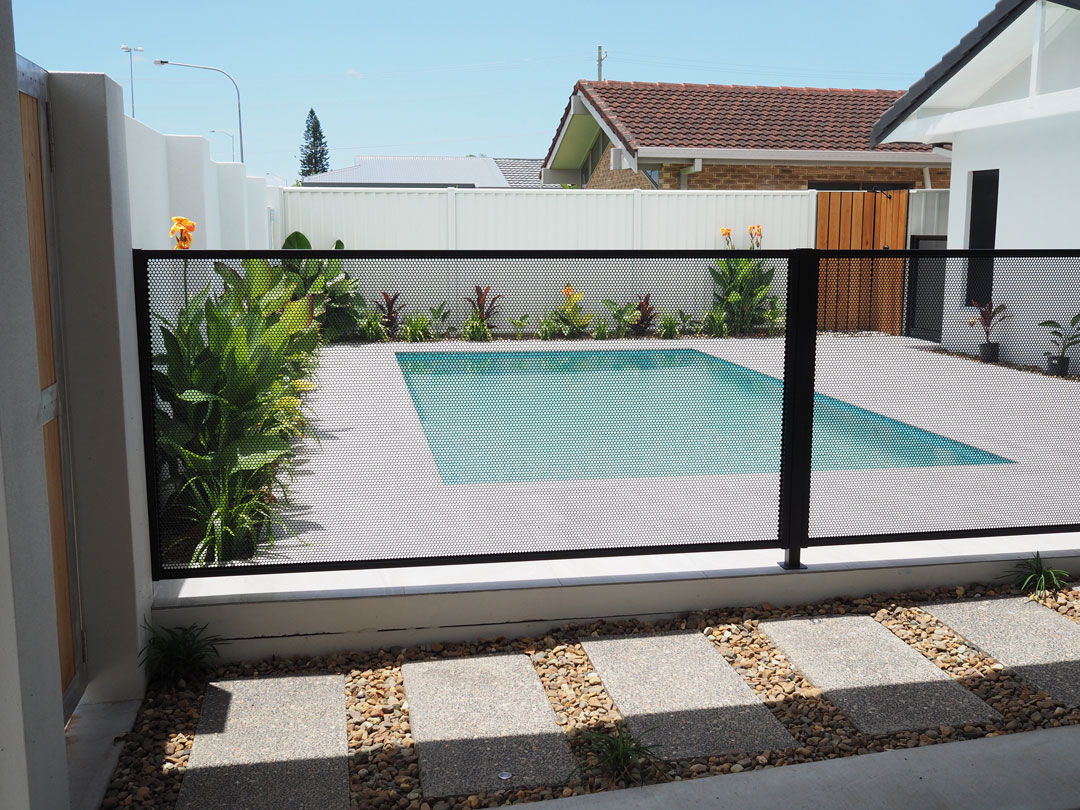
Comments are closed.